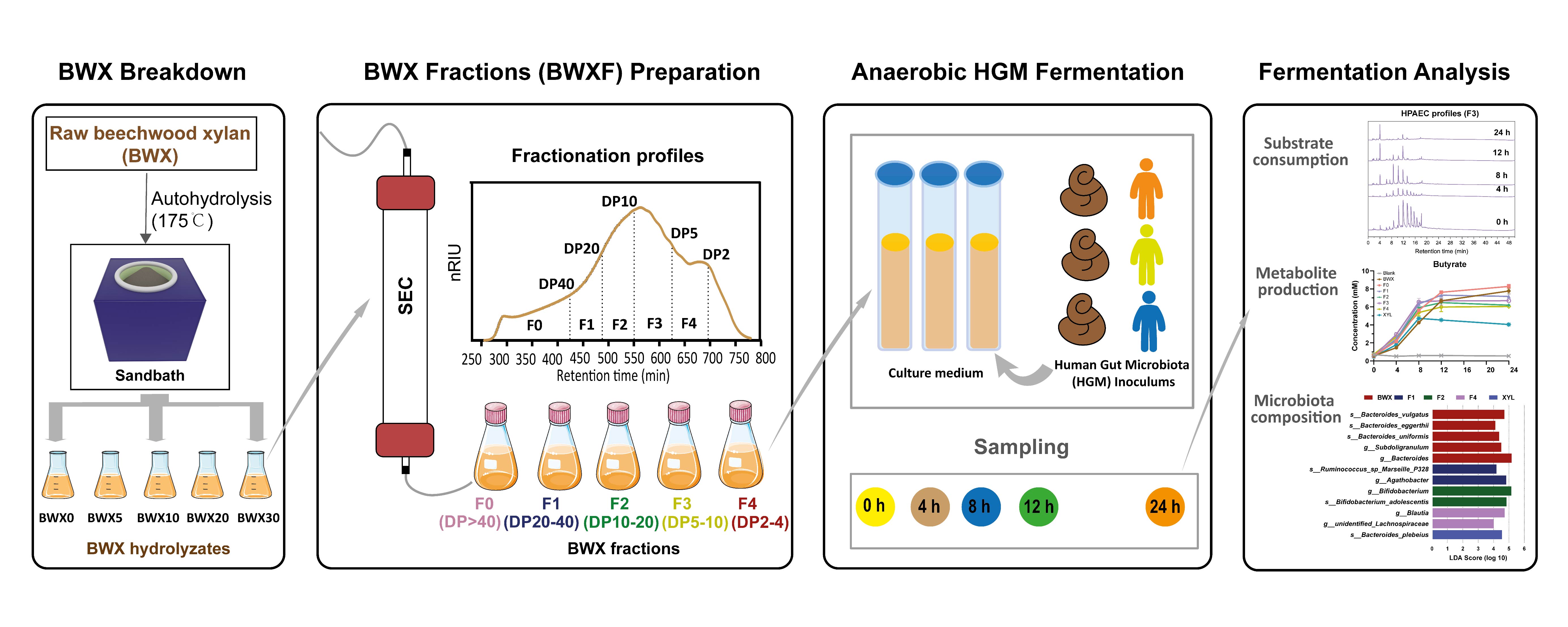2024 AIChE Annual Meeting
(27f) Exploring the Impact of Xylooligosaccharide Chain Length on Modulating Human Gut Microbiota
Authors
Raymond Lau, Nanyang Technological University
Ming-Hsu Chen, Institute of Food Science and Technology, National Taiwan University
Xylooligosaccharides (XOS), derived from hemicellulose such as beechwood xylan (BWX), are recognized as potential dietary fibers. XOS with a low degree of polymerization (DP) has particularly been shown to exert prebiotic effects by selectively stimulating the growth of beneficial gut bacteria. However, the precise effects of different XOS chain lengths on gut microbiota composition and metabolic output remain unclear. This knowledge is crucial for elucidating the potential health-promoting properties of XOS and optimizing their applications as dietary supplements. Therefore, this study was designed to investigate how XOS with different chain lengths modulate human gut microbiota. We employed autohydrolysis to break down raw BWX, followed by size-exclusion chromatography (SEC) to produce five BWX fractions with different DPs (> 40, 20–40, 10–20, 5–10, and 2–4). These fractions, along with BWX, were subjected to in vitro fermentation with human feces as inoculum. Our results demonstrated that treatment with BWX fractions (BWXF) induced alterations in both microbial composition and metabolic output, which was driven by the chain length specificity. Notably, the Bacteroidaceae family was enriched in xylan. The Lachnospiraceae family, exemplified by the Blautia and Agathobacter genera, were selectively stimulated by XOS with DP of 20–40 and 2–4. XOS with DP 5–20 significantly promoted Bifidobacterium adolescentis and Bifidobacterium longum species, leading to significant bifidogenic effects. Moreover, long-chain BWXF cultures show higher butyrate production whereas XOS with DP 5–20 result in notable lactate accumulation. In conclusion, XOS chain lengths modulate microbial community responses, offering insights into the targeted manipulation of specific gut microbiota using fibers with distinct structural properties. These findings may pave the way for the development of novel dietary strategies and therapeutic interventions aimed at modulating the gut microbiota to improve human health.


